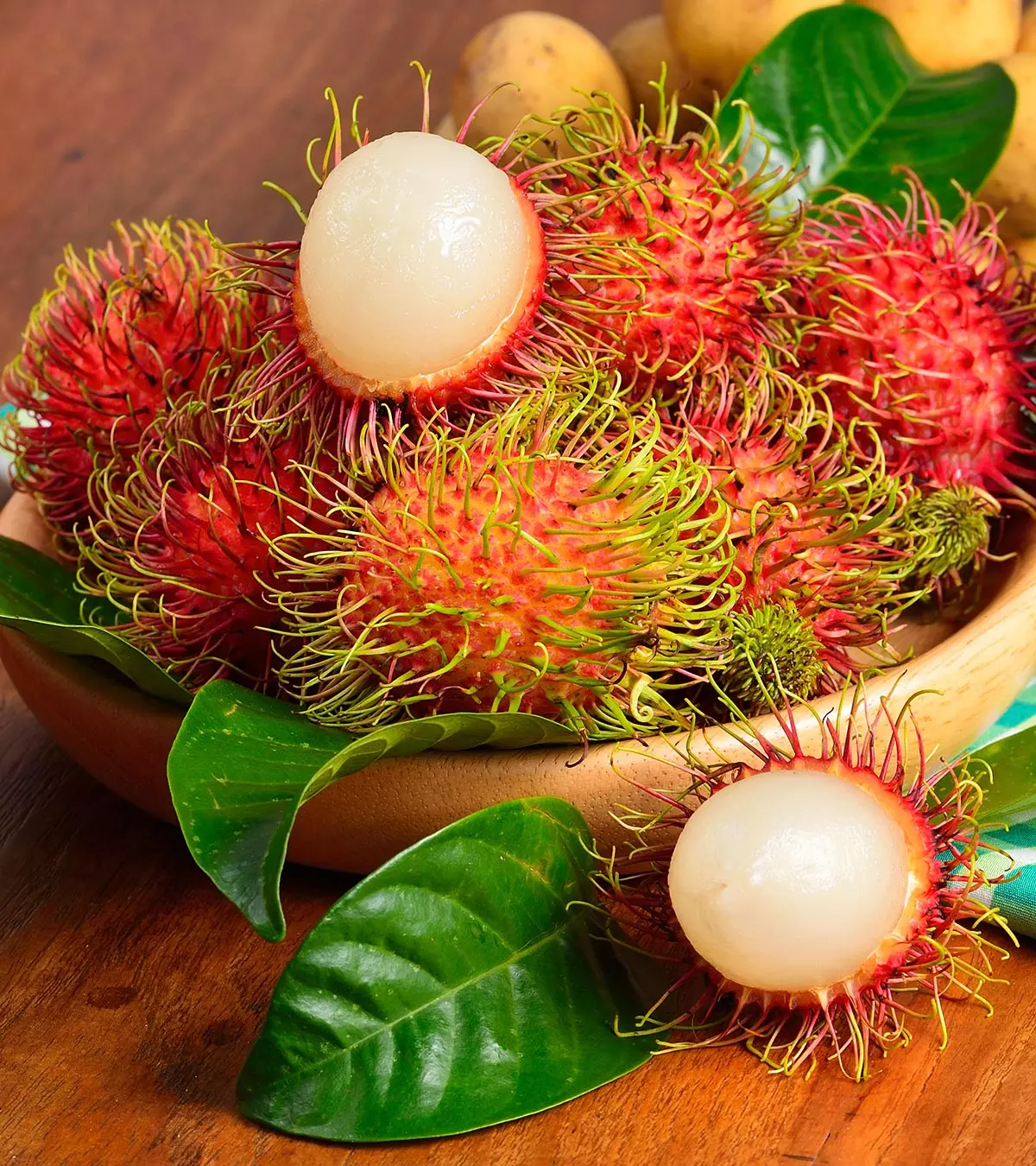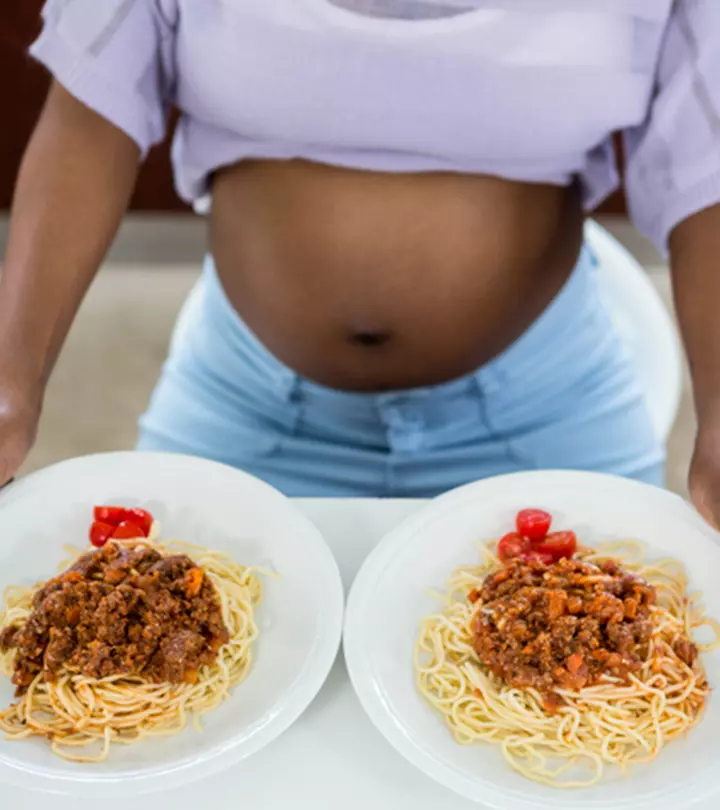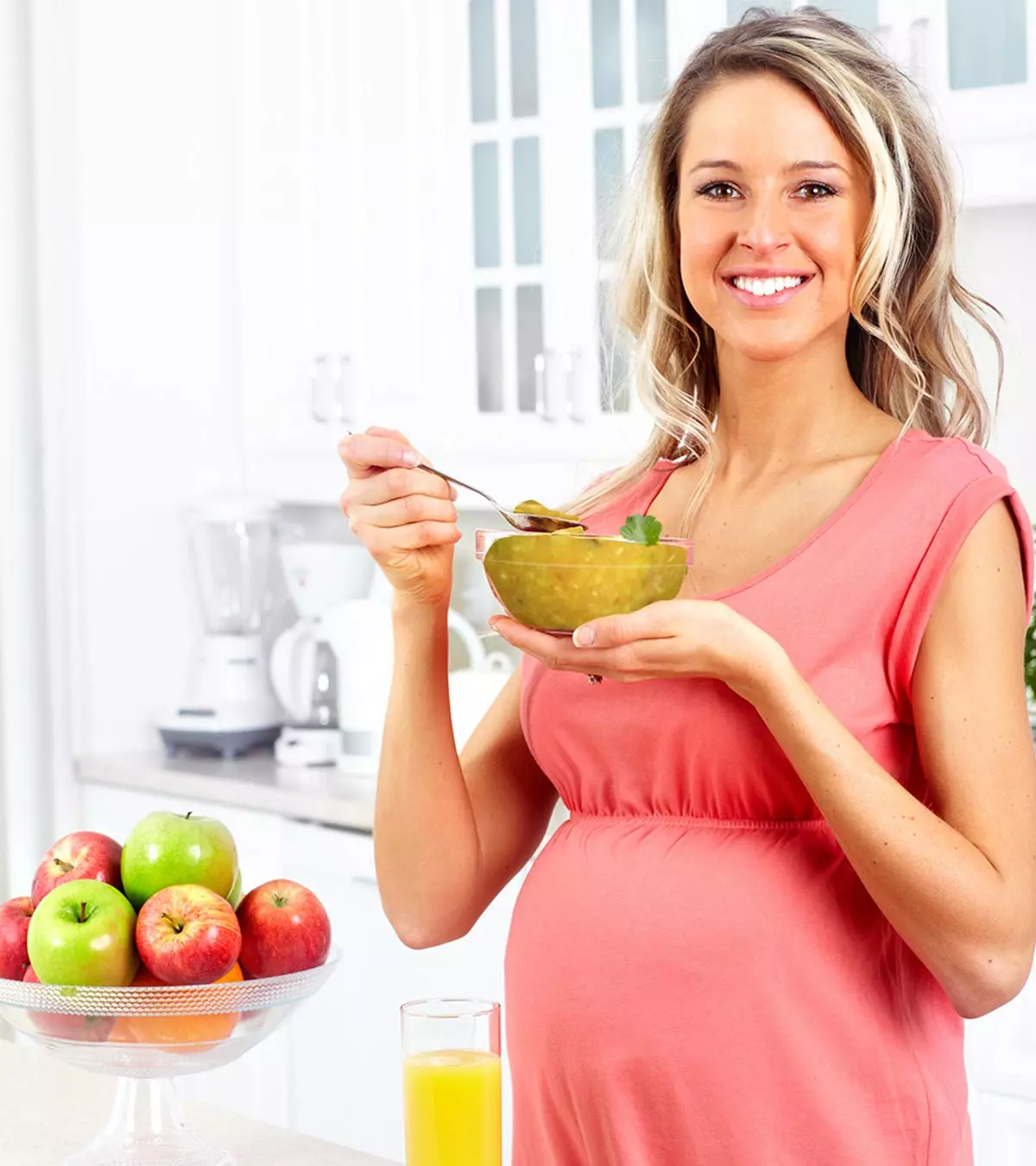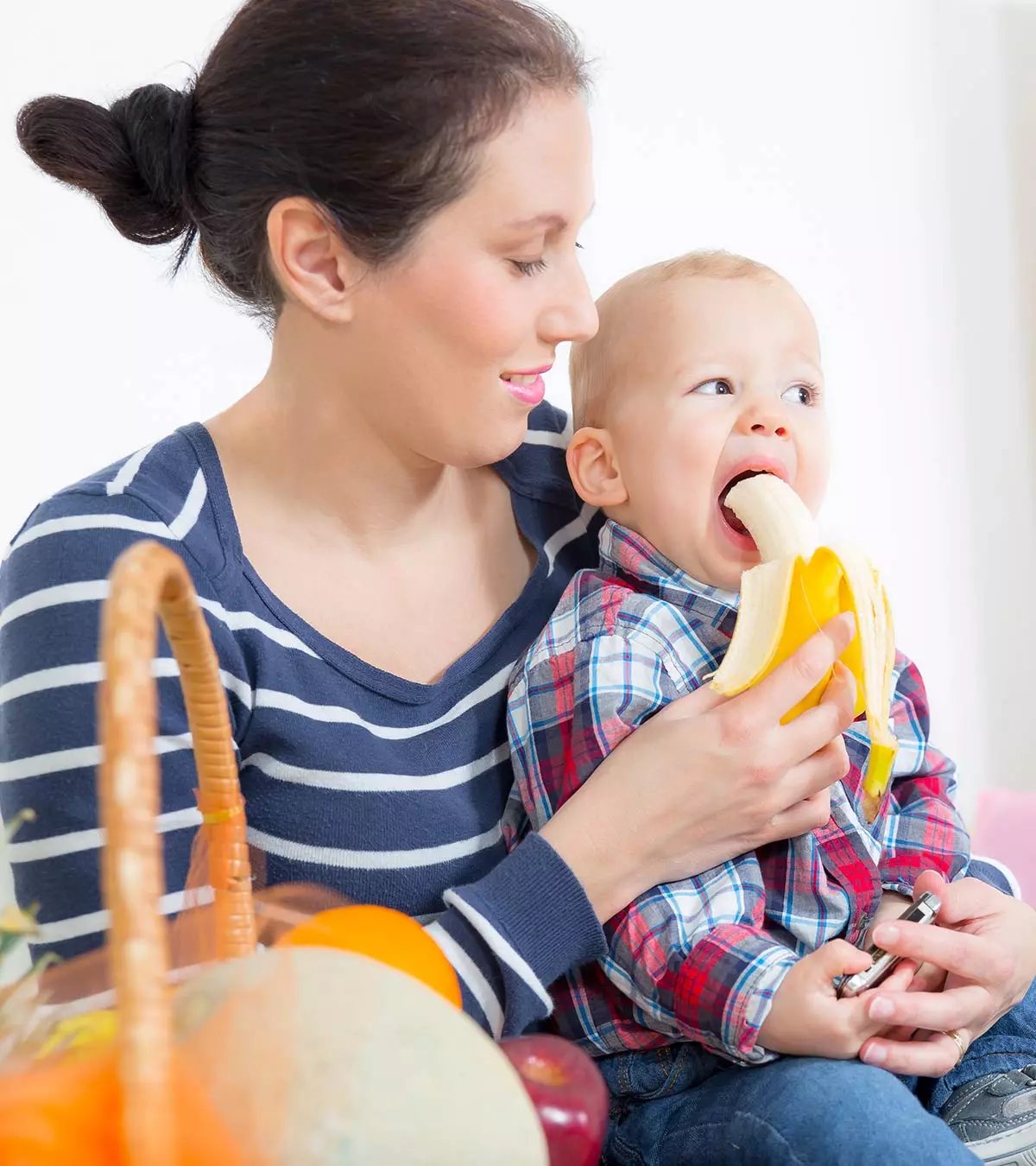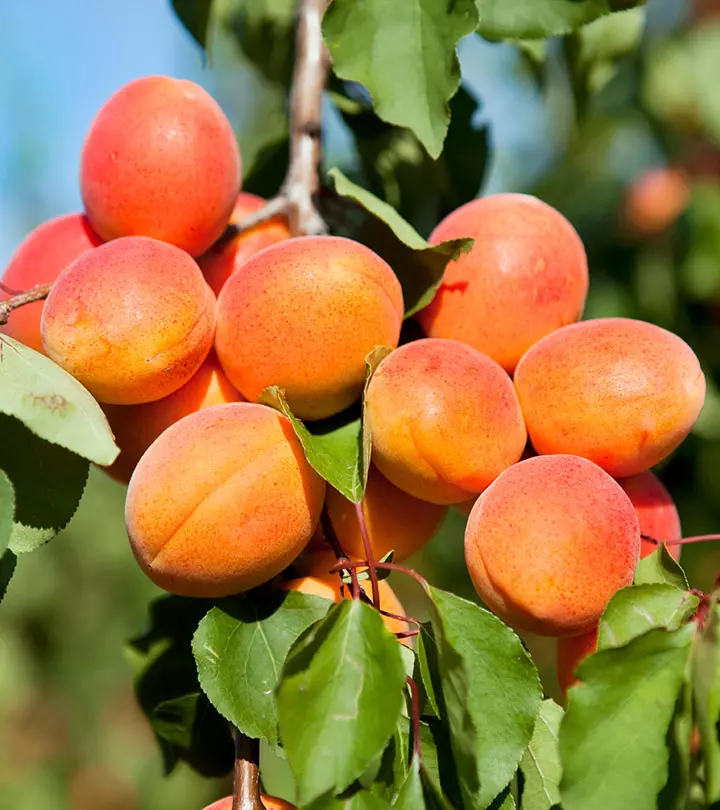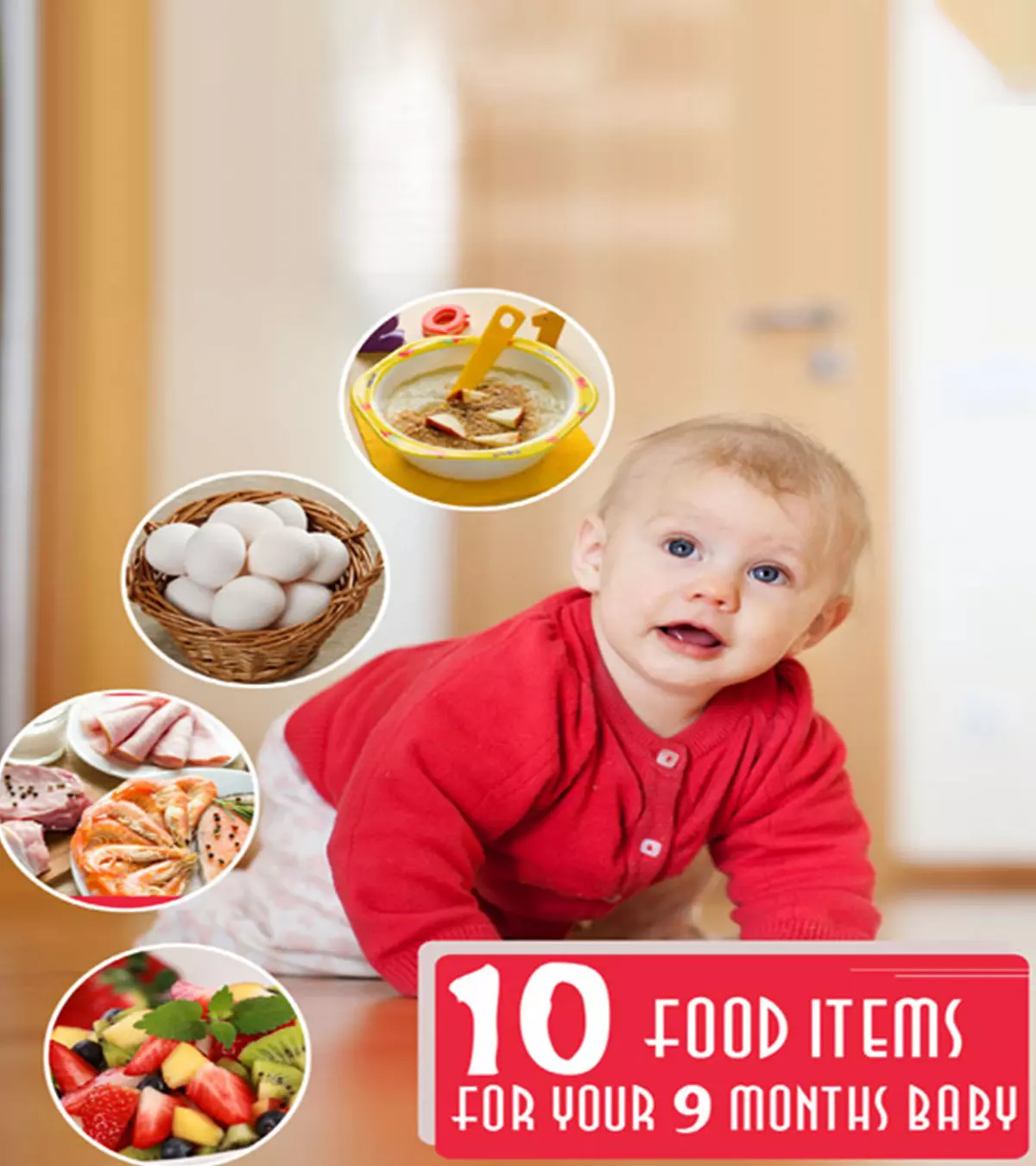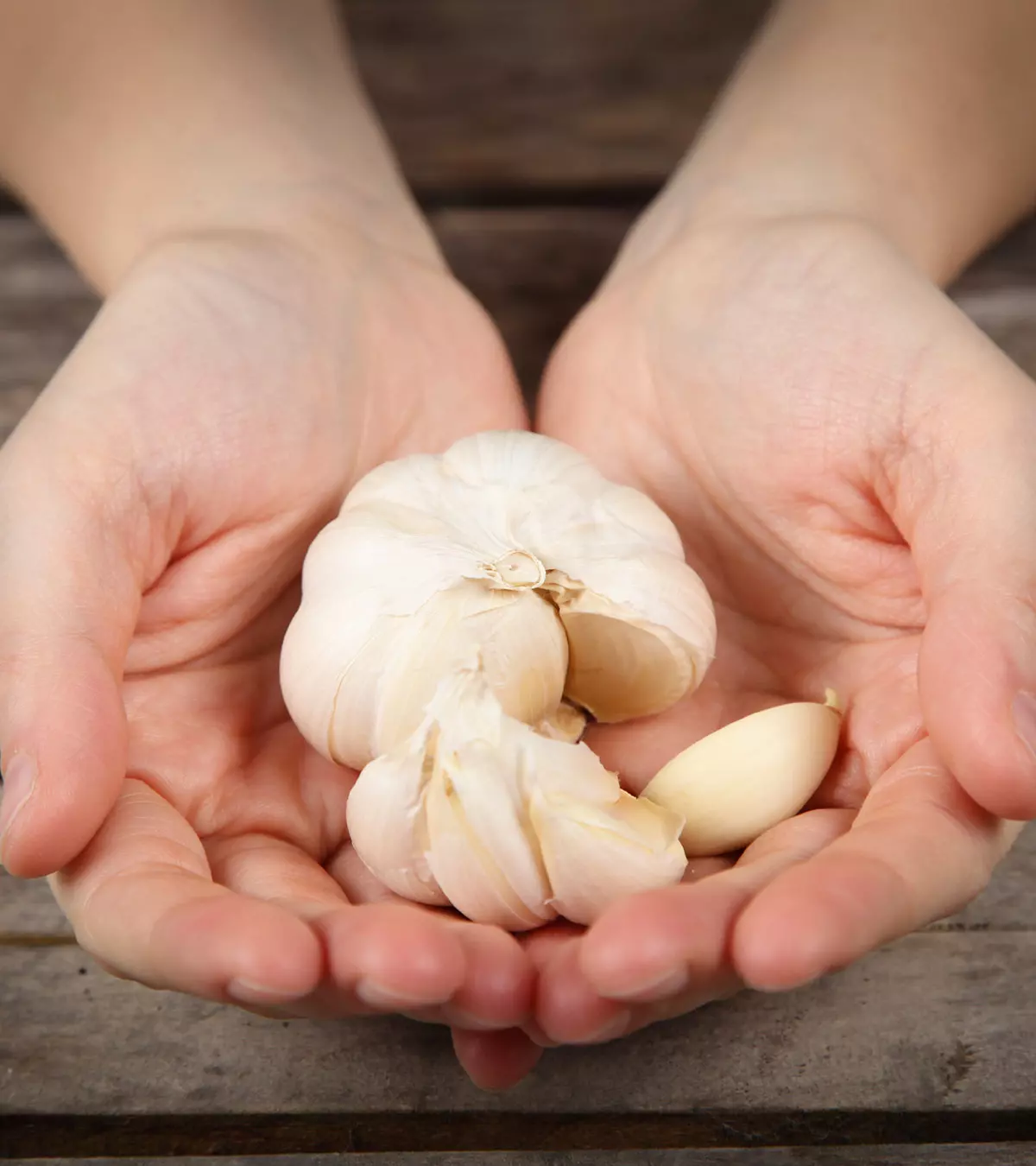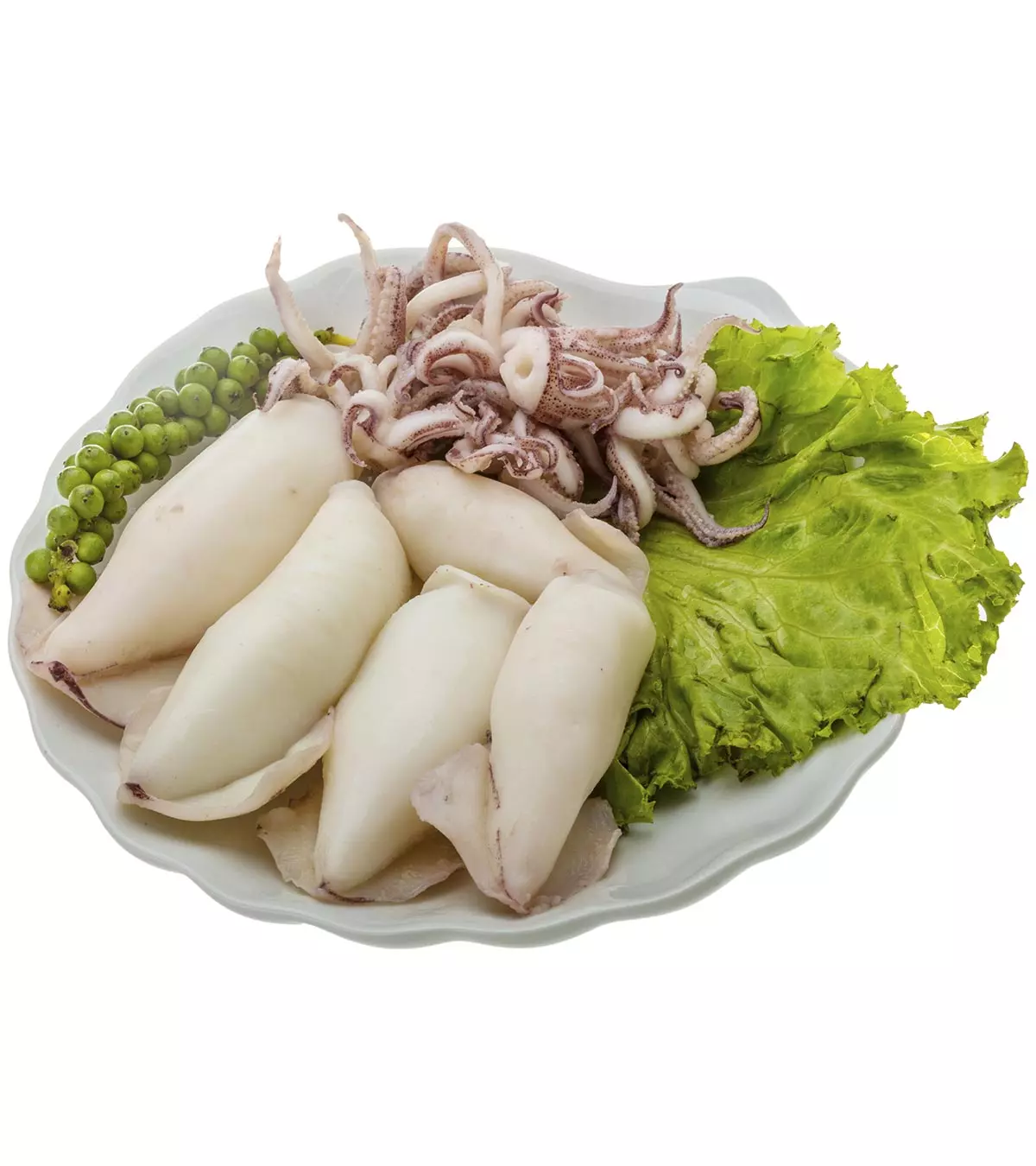
Image: ShutterStock

Calamari or squid is a good source of essential fatty acids. But, can pregnant women eat calamari? Does it affect maternal and fetal health? Read this post to clarify your doubts.
It is natural for you to try your best to do everything right to provide the best for your growing baby. So, you do not step back from giving up eating things that you love. Also, you may even try something against your liking to fulfill the target of a balanced, wholesome diet.
Read on to learn if you can add calamari to your pregnancy diet.
Key Pointers
- Consuming calamari is safe during pregnancy at a limit of 5 ounces per week.
- Calamari is a rich source of essential nutrients such as omega-3 fatty acids, proteins, copper, selenium, phosphorus, vitamins B2, B12, C, and iron.
- Its low mercury content makes it a safe option for pregnant women.
- Pregnant women allergic to calamari should avoid consuming it unless advised by a doctor.
Is It Safe To Eat Calamari During Pregnancy?
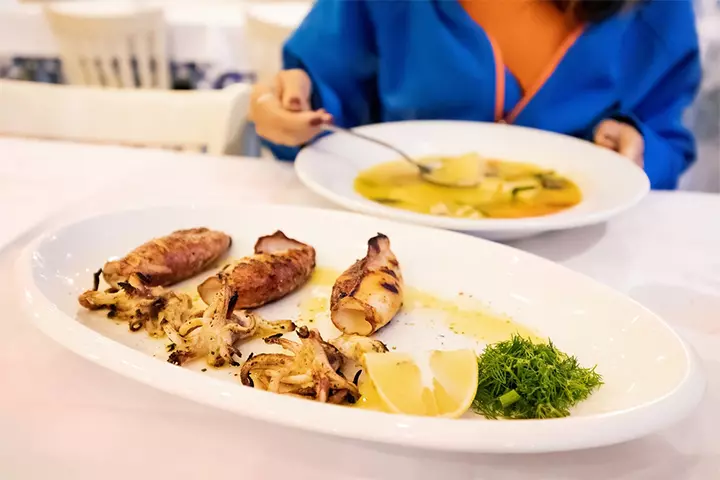
Image: Shutterstock
Consuming about five ounces of calamari every week is considered safe during pregnancy and is beneficial for your developing baby.
Calamari is the Italian name for squid, which is high in nutritional value. It is a good source of omega-3 fatty acids (1), proteins, minerals, and other essential nutrients; and is low in sodium and saturated fat content. What about the mercury levels, though?
Calamari And Mercury
Almost all seafood contains some traces of mercury. Since mercury can have adverse effects on the nervous system of your developing baby (2), you need to adhere to your dietary restrictions and stay away from seafood such as tilefish, swordfish, marlin, and king mackerel that contain a high level of mercury.
However, calamari is one of the safest seafoods to be consumed during pregnancy as it is low in mercury content and high in nutrition. However, it is important to follow the recommendations and consume it in limited quantities – not more than five ounces a week – to make the most of its goodness.
 Be watchful
Be watchfulNutritional Values And Benefits Of Calamari
Here is the entire list of nutrients you can find in three ounces of cooked calamari serving, and how they will benefit you (3):
| Nutrients | Amount | % in the recommended daily allowance (RDA) | Benefits |
|---|---|---|---|
| Copper | 1.8mg | 90% |
|
| Selenium | 44mcg | 63% |
|
| Protein | 15g | 30% |
|
| Phosphorus | 213mg | 21% |
|
| Vitamin B2 (Riboflavin) | 0.389mg | 23% |
|
| Vitamin B12 | 1.05mcg | 18% |
|
| Zinc | 1.48mg | 10% |
|
| Vitamin C | 3.6mg | 6% |
|
| Iron | 0.86mg | 5% |
|
Nutritional food need not always be lacking in flavor
. You can make it interesting to eat so that you reap its benefits while relishing the taste.
How To Consume Calamari While Pregnant?
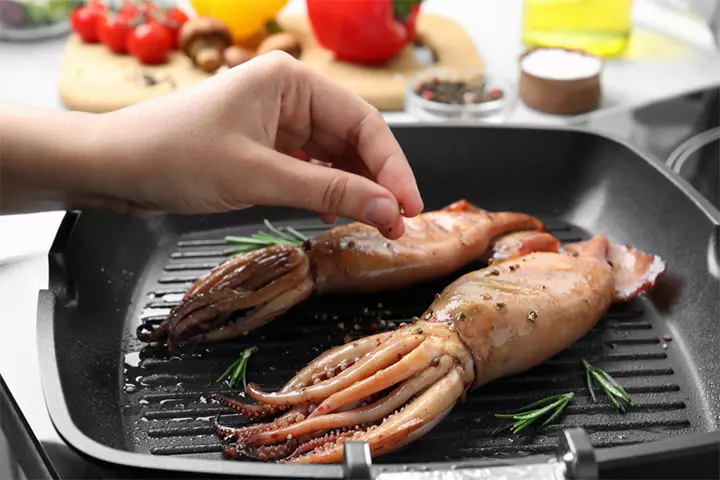
Image: Shutterstock
Here are some guidelines you must follow while consuming calamari when pregnant to obtain the best from this nutritious seafood:
- Avoid eating deep-fried calamari. Deep frying reduces its nutritional value as well as adds unhealthy saturated fats, which may contribute to excessive weight gain.
- Steam, grill, or sautée calamari so that the nutrients are intact and it is easy on your digestive system.
- Bake calamari with fresh vegetables and other healthy ingredients that can make the dish tasty.
- Sauté calamari in green salads to make a delightful snack.
- Thoroughly clean the calamari and cook it well.
 Experts say
Experts say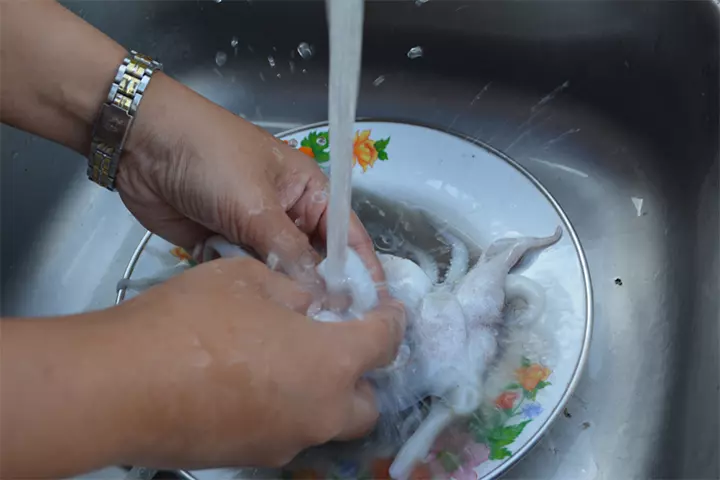
Image: Shutterstock
- Check the expiration date, freshness of the product, and hygiene of the store before you purchase calamari.
If you are allergic to calamari or shellfish, avoid it during pregnancy. Before you start eating the seafood, make sure to talk to your doctor to ascertain its safety. They can tell you if you need it in your diet during pregnancy.
Frequently Asked Questions
1. How does the omega-3 content in calamari benefit pregnant women and their babies?
Squid contains a small amount of Omega 3 fatty acids. Omega 3 fatty acids include DHA, EPA, and ALA, which help in fetal neurodevelopment and brain growth. Omega-3 is also known to help reduce the risk of cardiovascular problems such as coronary heart disease in women (2) (4).
2. What are some common misconceptions or myths about eating calamari while pregnant?
Studies on food taboos associated with pregnancy included squid under the taboo categories that highlighted myths related to undesired events such as deformities, miscarriage, twelve-month pregnancy, and unique fetal defects. In addition, it was also related to plausible physiological complications such as a child adopting the food animal’s characteristics, impacted intelligence, illness, the baby having sticky skin, or dangerous birth conditions. Additionally, squid is also believed to make the womb sticky. However, most of this is not scientifically backed, and the rest are debatable (5).
Calamari has a high nutritional value and low mercury level compared to other seafood. Hence, it is considered beneficial for pregnant women and the development of the fetus. You can safely consume calamari after steaming it or sauteeing it with fresh vegetables. However, it is advised to avoid having it in raw or deep-fried form as it may compromise its nutritional value. Further, caution should be employed as consumption of raw fish and seafood while pregnant is not advisable. Safe fish to eat during pregnancy are low-mercury, well-cooked, such as calamari, which can be a nutritious addition to salads or other dishes.
Infographic: Nutritional Values And Advantages Of Calamari In Pregnancy
Calamari is among the safe seafood choices for pregnant women because it is low in mercury. However, make sure you buy it fresh and cook it well before consuming it. Besides being packed with essential omega-3 fatty acids, calamari provides other nutritional benefits, highlighted in the infographic below.
Some thing wrong with infographic shortcode. please verify shortcode syntax
Illustration: Calamari During Pregnancy - Is It Safe To Eat?
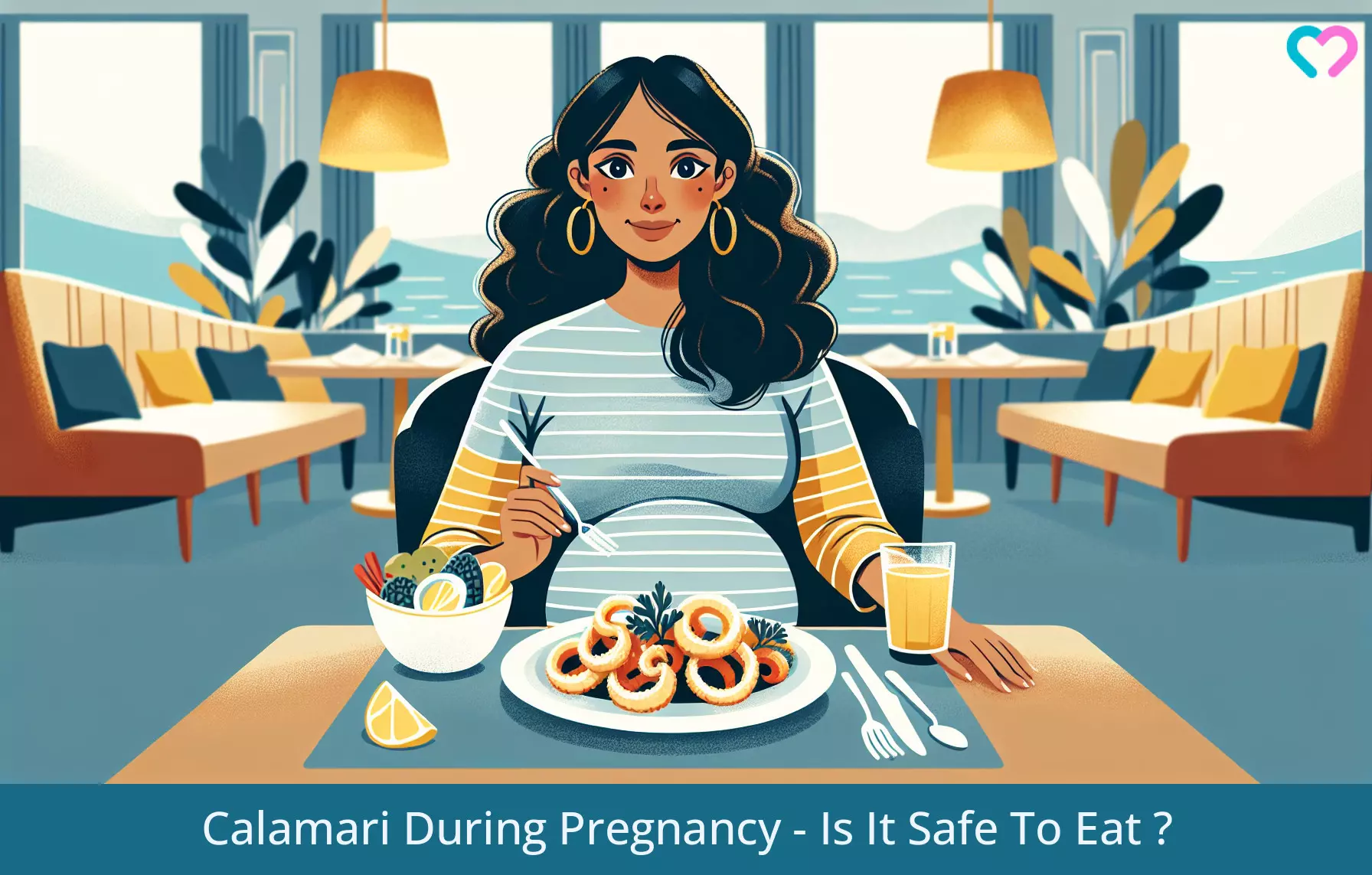
Image: Dalle E/MomJunction Design Team
References
- Which Fish Is The Richest In Omega-3s?
https://www.seafoodnutrition.org/wp-content/uploads/2025/03/RDN-Toolkit-2020_Omega3-Chart.pdf - Omega-3 Fatty Acids; National Institutes of Health (NIH) Office of Dietary Supplements
https://ods.od.nih.gov/factsheets/Omega3FattyAcids-HealthProfessional/ - Mollusks fried cooked mixed species squid.
https://www.nutritionvalue.org/Mollusks%2C_fried%2C_cooked%2C_mixed_species%2C_squid_nutritional_value.html#google_vignette - Is squid oil a good source of omega-3 fatty acids?; Consumer Reports
https://www.consumerreports.org/cro/news/2013/03/is-squid-oil-a-good-source-of-omega-3-fatty-acids/index.htm - Ornella Maggiulli et al; (2025); Food taboos during pregnancy: meta-analysis on cross cultural differences suggests specific diet-related pressures on childbirth among agriculturalists ; NCBI
https://www.ncbi.nlm.nih.gov/pmc/articles/PMC9281602/ - Maria Olga Varrà et al.; (2025); Cadmium, lead, and mercury in two commercial squid species from the north Adriatic Sea (central Mediterranean): contamination levels and health risk assessment; NCBI.
https://www.ncbi.nlm.nih.gov/pmc/articles/PMC10316270/ - Food Safety For Pregnant Women, Their Unborn Babies, and Children Under Five.
https://www.fda.gov/media/83740/download
Community Experiences
Join the conversation and become a part of our nurturing community! Share your stories, experiences, and insights to connect with fellow parents.
Read full bio of Claudia Wilson
Read full bio of shreeja pillai
Read full bio of Swati Patwal
Read full bio of Dr. Joyani Das








